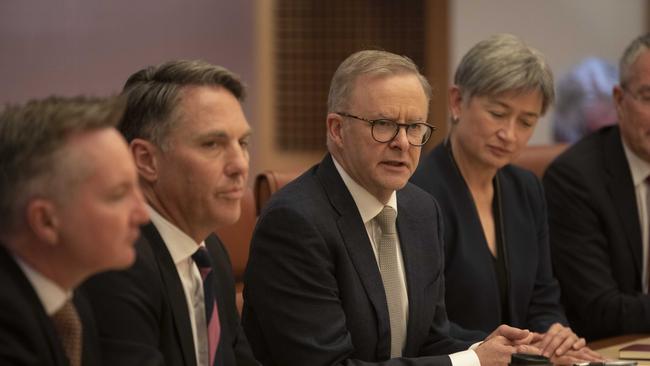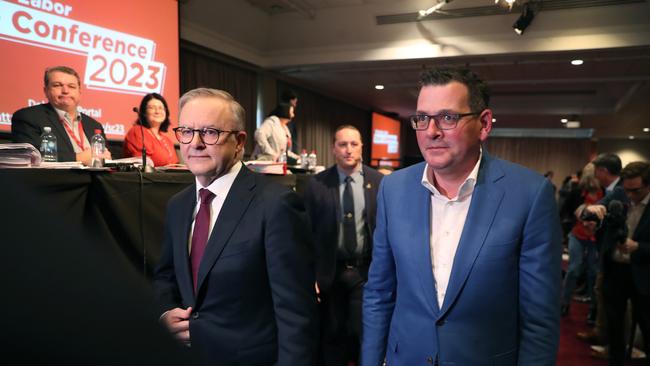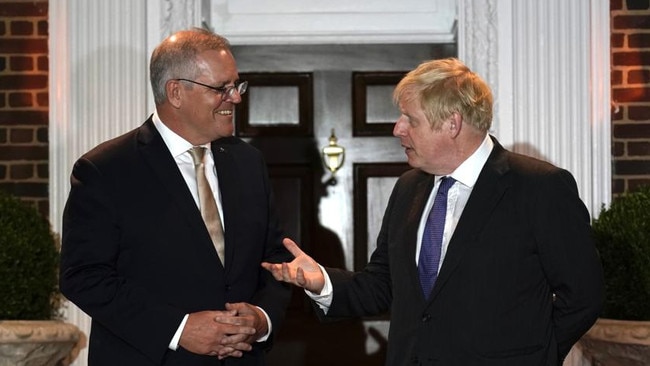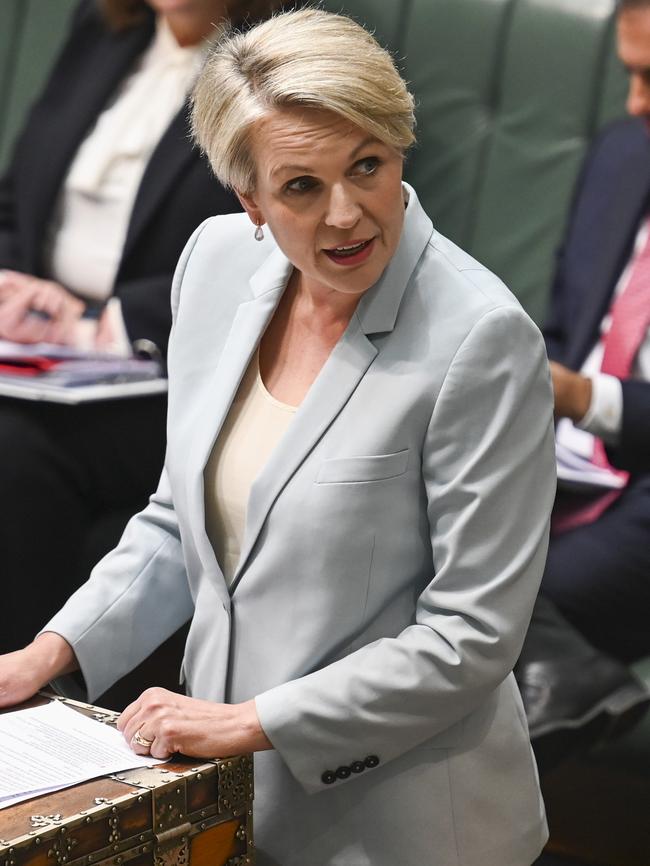
Australia’s strategic consensus is far more fragile than it seems, and overwhelmingly dependent on Anthony Albanese, Penny Wong and Richard Marles. This is evident from last weekend’s Victorian ALP conference.
The conference had majority support for a motion expressing its disappointment with the Albanese government’s nuclear submarine deal under AUKUS. At the last moment the conference agreed to defer formally passing this motion, and instead refer it to the federal conference policy committee.

The Victorian ALP conference also passed a motion demanding that the Albanese government formally recognise a state of Palestine during this parliamentary term. This would be a disastrous move.
There is no serious risk the federal ALP conference will repudiate the Albanese government over AUKUS. However, the culture of Labor’s organisational wing is moving further to the left, against the strategic consensus the Albanese government is prosecuting.
The Queensland ALP conference recently defeated a motion congratulating the Albanese government over AUKUS. The Left now has majority support within the Queensland ALP. The traditionally dominant ALP Right in NSW is a sad shadow of its former self on strategic issues. It’s also losing its old party dominance.
These are profound dynamics in Australia’s political culture that are little understood. At this year’s federal ALP conference the Left will be in a majority for the first time since the 1960s.
In the old days when the Victorian party was controlled by the Left it routinely passed more or less insane foreign policy motions that were always defeated at federal conference because the Right had the numbers there.
But progressive hegemony is now running through all institutions, including all the political parties and non-government institutions, such as business and trade unions.
As recently as 2019, there was enough internal democracy in the Victorian ALP for there to be a proposed motion for the state Labor conference criticising the government of Dan Andrews for its participation in the Chinese government Belt and Road Initiative.

Victoria’s participation in the BRI was later cancelled by the Morrison government under special federal powers concerning foreign treaties and agreements. That state ALP conference was never held because the operations of the Labor Party were suspended by Andrews in response to branch rorting charges.
This suspension meant that one of very few remaining democratic constraints on the Andrews government was gone. Generally the Andrews government gets a soft press from the ABC and the Nine newspapers. With its massive government resources, it anyway mostly ignores mainstream media and operates through social media, speaking directly, and simplistically, to those millions of Australians who are disengaged from anything resembling formal political debate. It’s also blessed with a hopeless opposition, hopelessly led.
As a result, Victoria is basically a one-party state with all the excess and dysfunction that implies. At the same time, Andrews used the suspension of the Labor Party’s normal operations to change the internal factional balance within the party. Thousands of members were permanently lost, but the Andrews government doesn’t really need them. And a couple of key trade unions that were formerly aligned to the Right switched to the Left. As a result, the Left is now in a clear, strong majority within the Victorian ALP.

So whereas once the ALP’s Victorian Right was the guardian of much strategic maturity and common sense within Labor, it’s now very much diminished, notwithstanding that its senior member, Marles, is Deputy Prime Minister.
The Greens had traditionally done Labor a favour by drawing to themselves many of the extremist activists who would once have been natural Labor branch members. But now the Greens are having a serious and detrimental effect on Labor’s political culture. The Greens want to replace Australia’s existing two-party system of Labor versus Liberal/Nationals with Labor versus the Greens. They are a long way from achieving that but they are making real progress, and their mere ambition is changing Labor, much for the worse.
Andrews himself is always signalling to Green inner-city voters that he is their champion. The triumph of the so-called teal independents in traditional Liberal seats is not primarily about community activism but is the greatest single manifestation in decades of the power of corporate money in Australian politics. It too in a fashion represents the cultural power of the Greens and their fellow travellers. The teals are essentially an upper-class version of the Greens’ social and economic outlook, shorn of its most radical elements and given a patina of upper-class flash money respectability to sanitise it for upper-class voters.
The Morrison government at the end was very unpopular yet Labor just squeaked across the line for majority government. In some ways, Labor’s position in relation to the Greens is even weaker than it looks.
Albanese and Tanya Plibersek are mighty warriors for their party and extremely effective politicians. But when either or both eventually retire it’s very difficult to imagine their Sydney seats not falling to the Greens.

There is no balancing equivalent on the right of Australian politics to the Greens on the left. Thus the ABC not unreasonably routinely covers the Greens as a mainstream party in a way it never does for Pauline Hanson or any of the other right-of-centre groups that occasionally gain parliamentary representation. Two generations ago, the right-of-centre Democratic Labor Party bent Australia’s strategic culture to the right. The Greens, and the times we live in, are now bending it to the left.
At the same time, the tactical ineptitude of the Liberals makes a major contribution. The Morrison government was right to stand up to Beijing’s bullying. But its at times absurd rhetoric, its constant talk of war and its failure to always distinguish between the Chinese government and Chinese people, and its failure to work hard at wooing Australians of Chinese ancestry, mean these citizens have voted en masse against the Coalition over the past few years.
Beijing considers this a strategic card it has successfully played within Australian politics against the Coalition. That’s very dangerous. The Australian system hasn’t protected Chinese diaspora Australians sufficiently. It has not ensured the independence of the information they receive, or protected them from surveillance and sometimes harassment by the Chinese state.
It’s an extremely good thing that Albanese, Marles and Wong care about strategic integrity and national interest, and also want to win elections.
But the consensus, as I say, is far more fragile than it seems. If you win the politics but lose the culture, your victory is very temporary. At the moment, the strategic culture is moving in the wrong direction.







